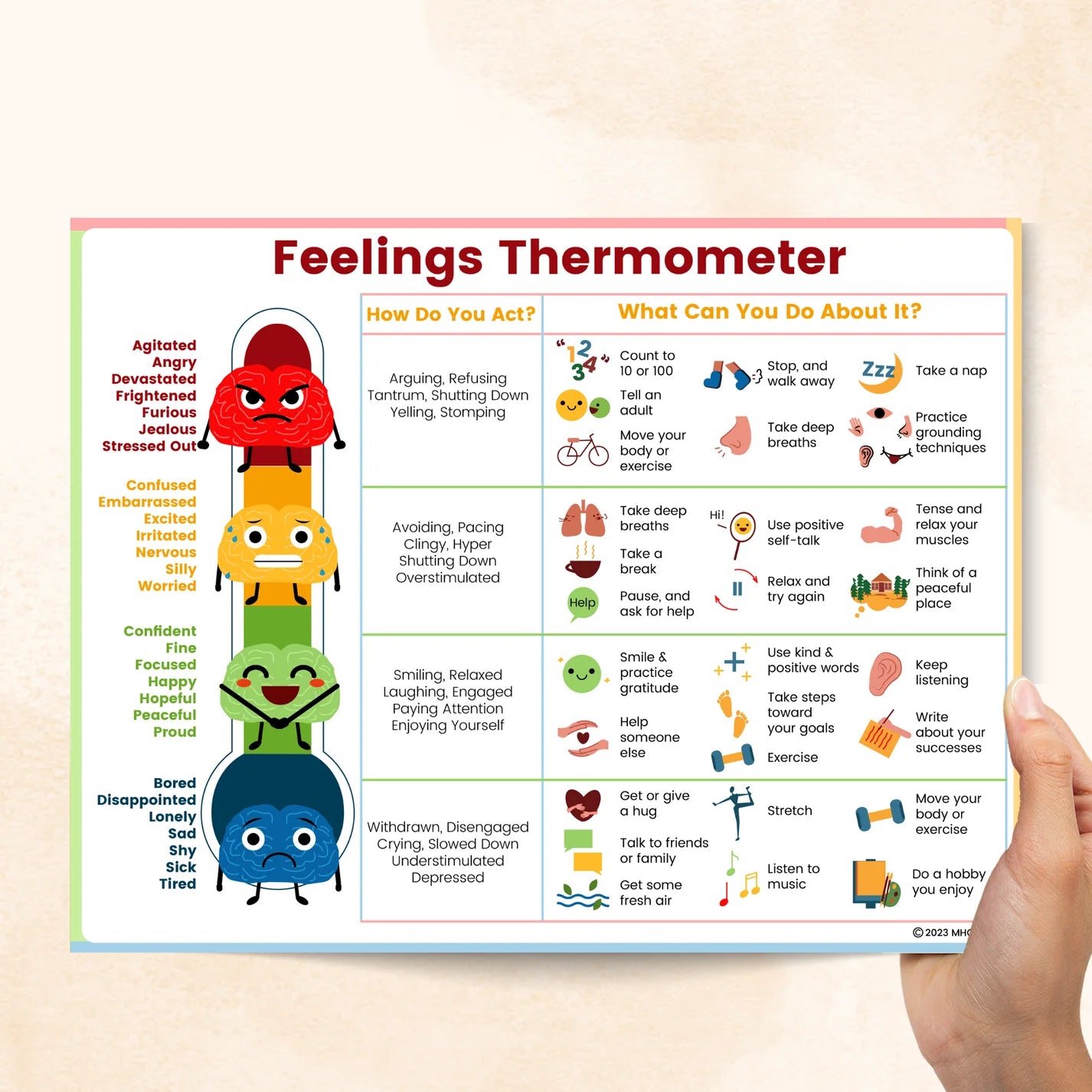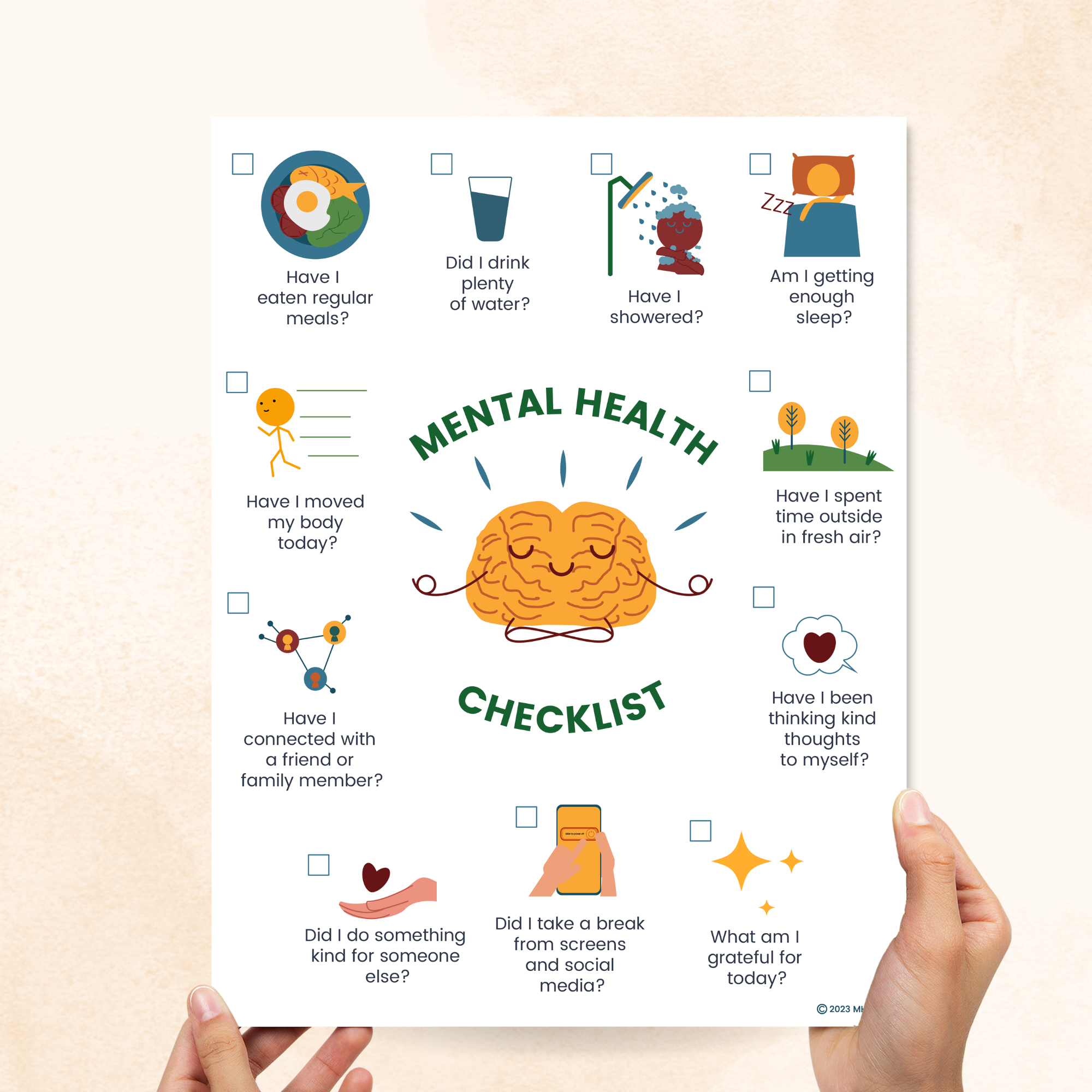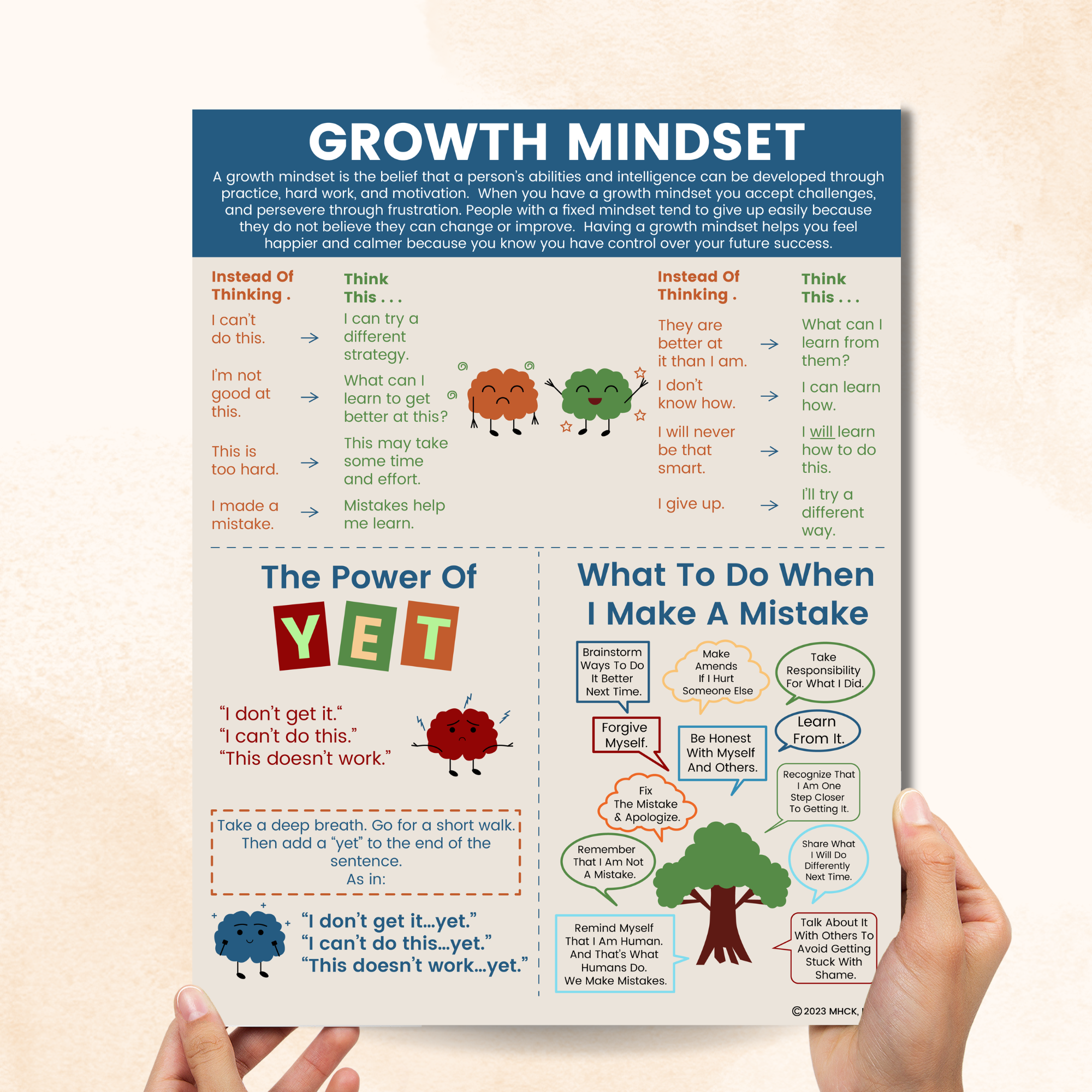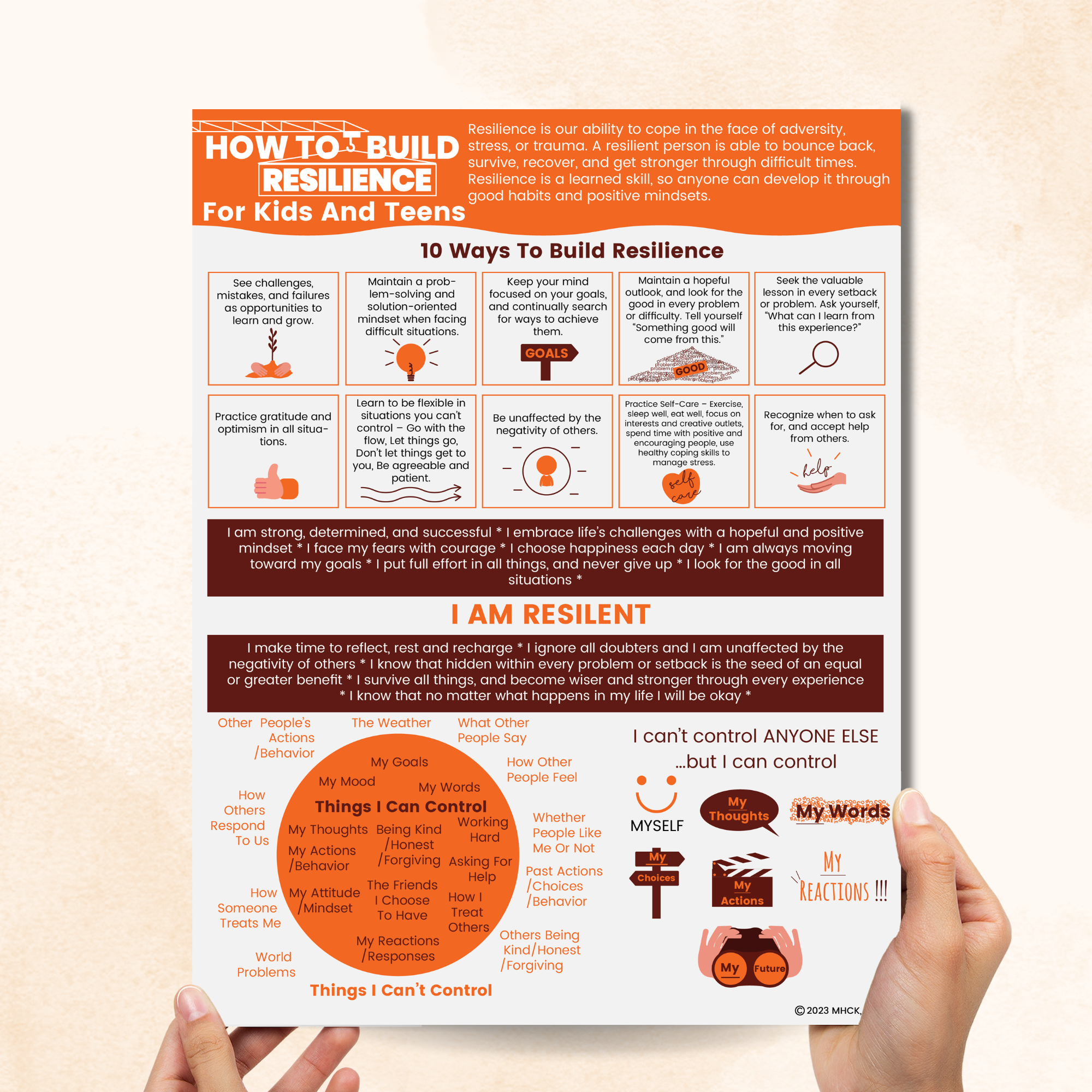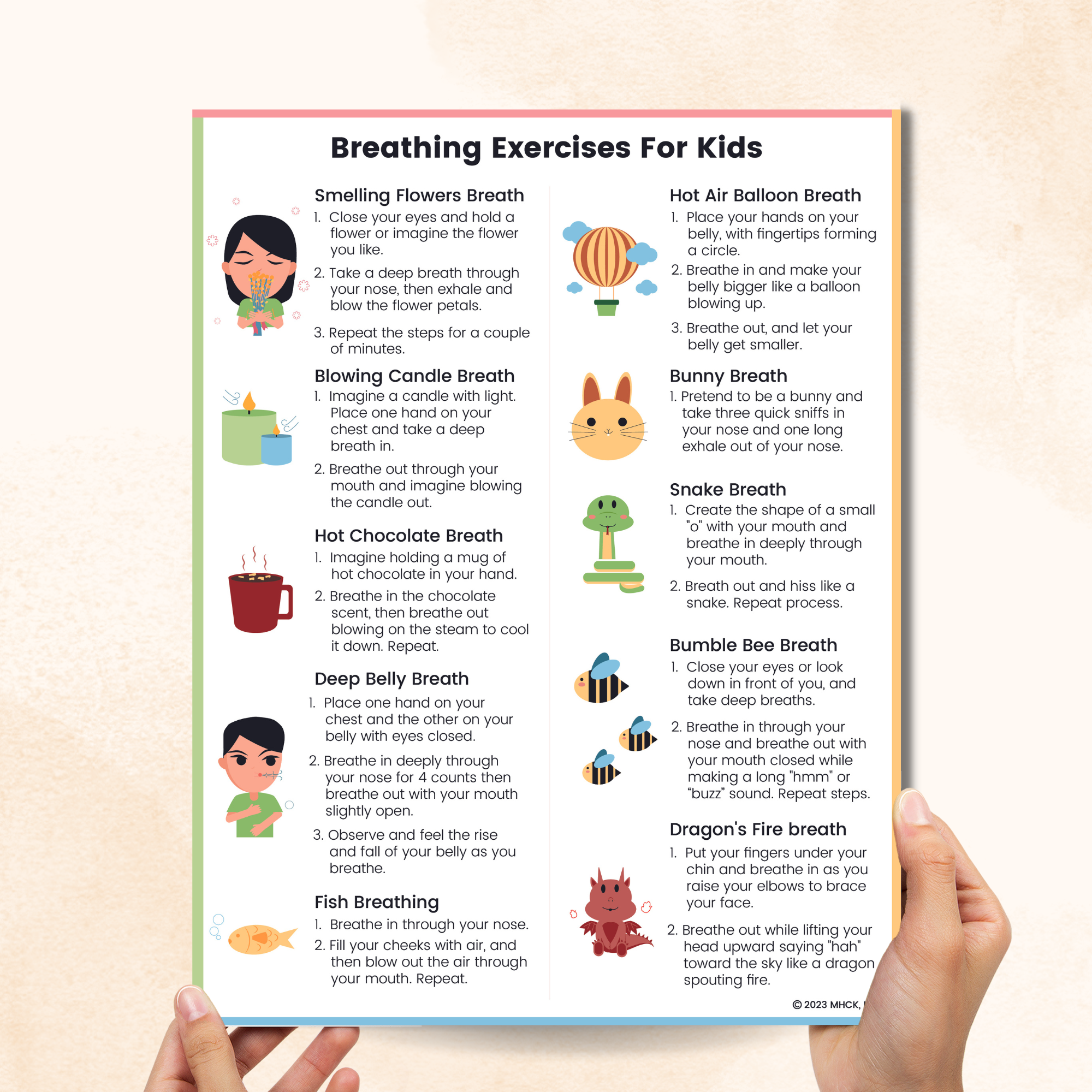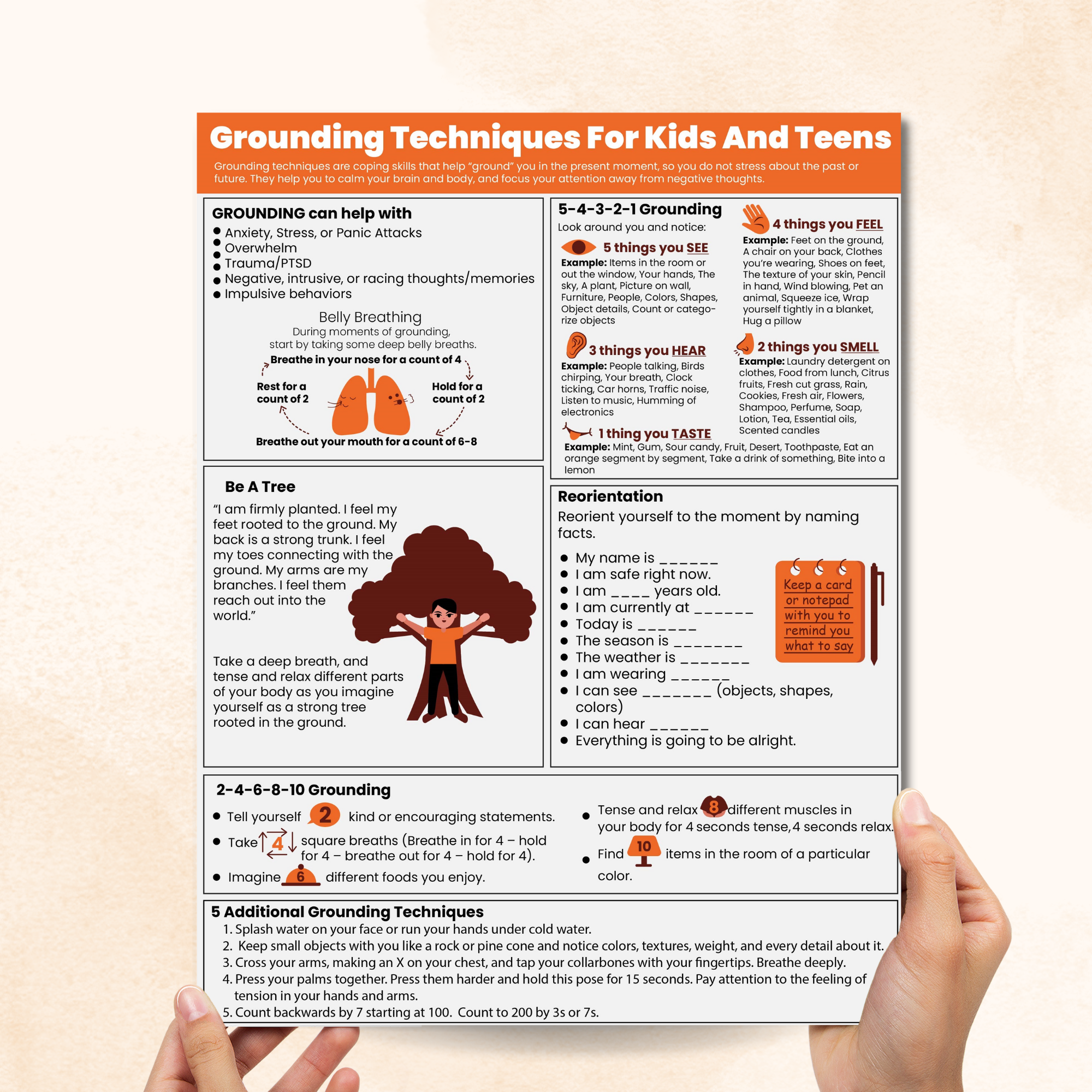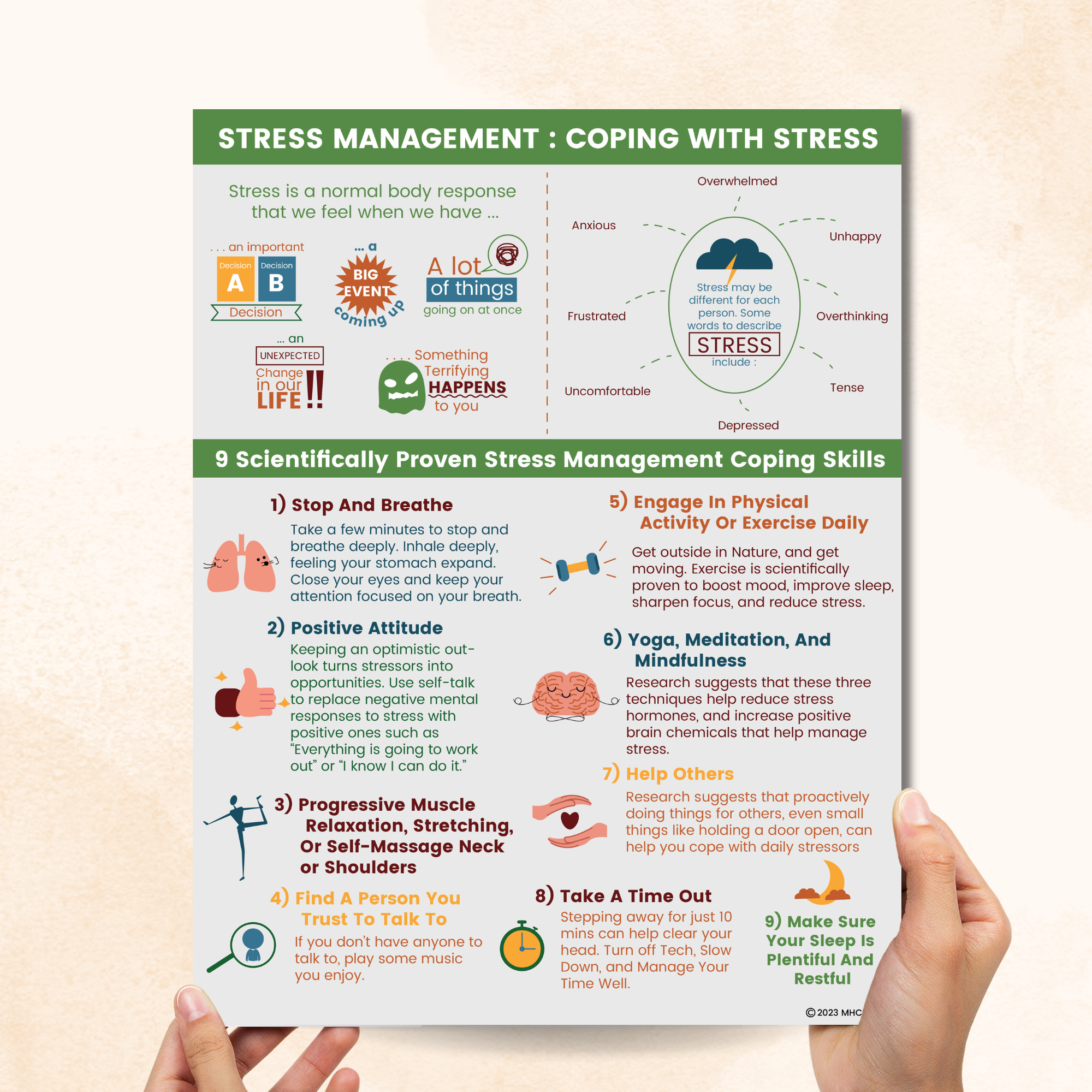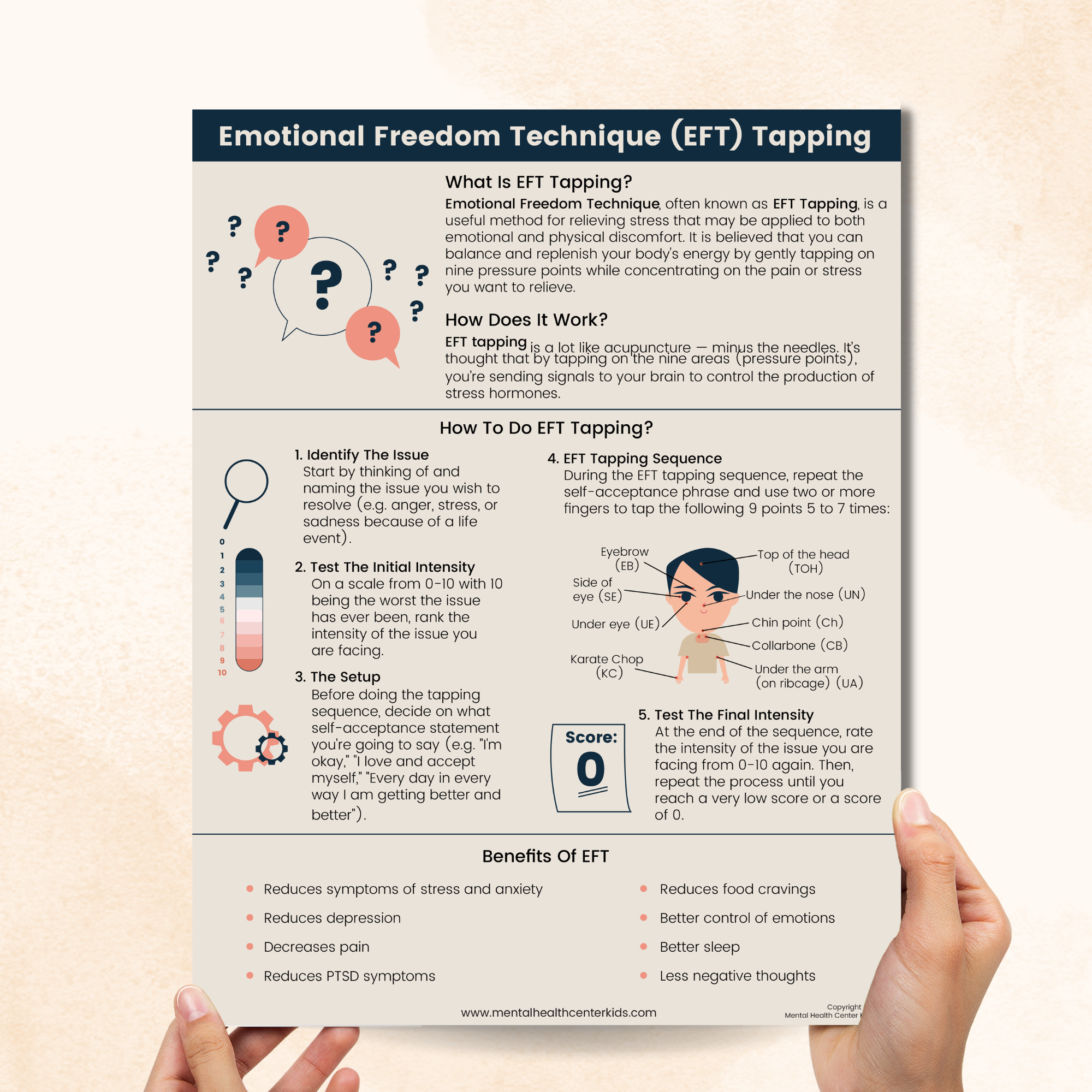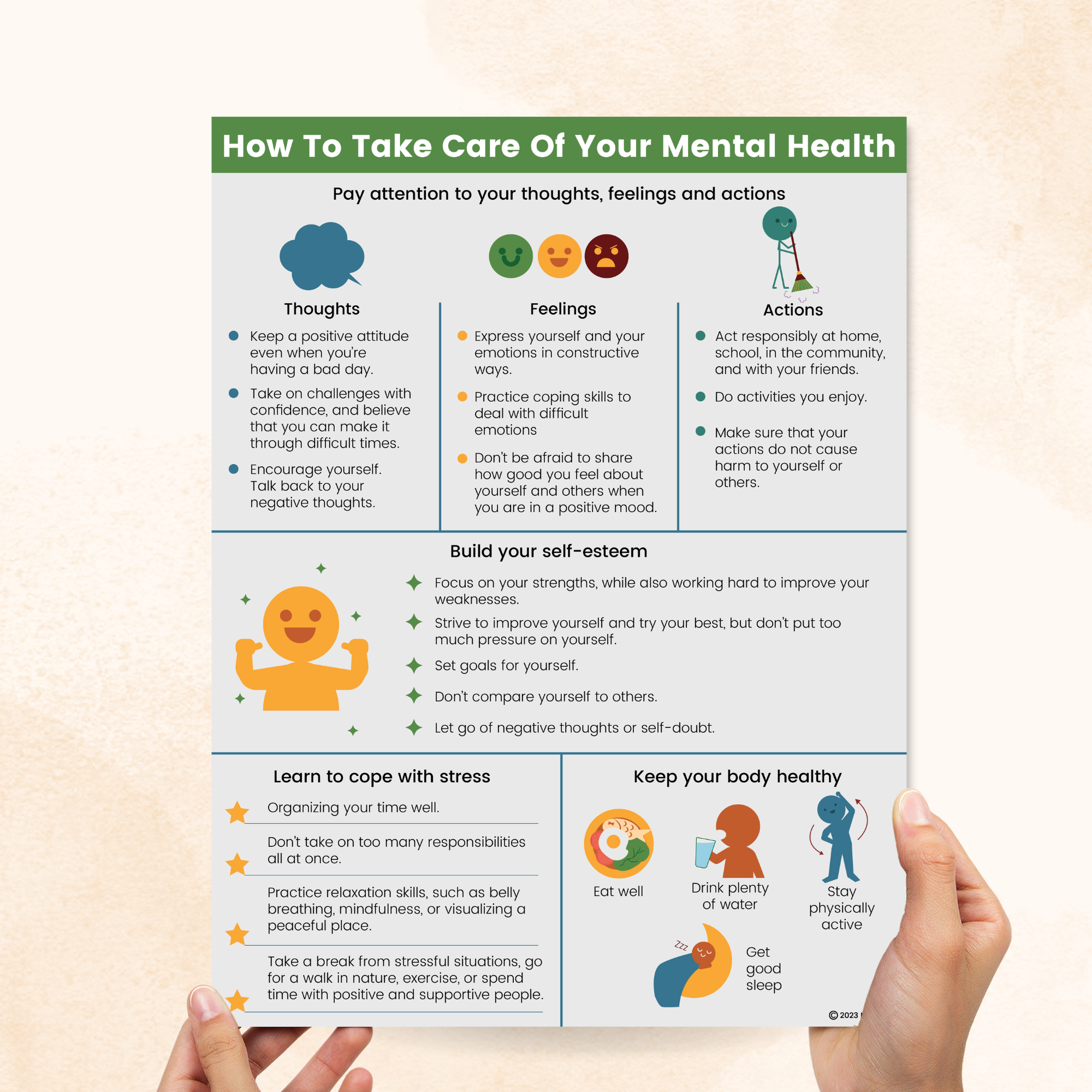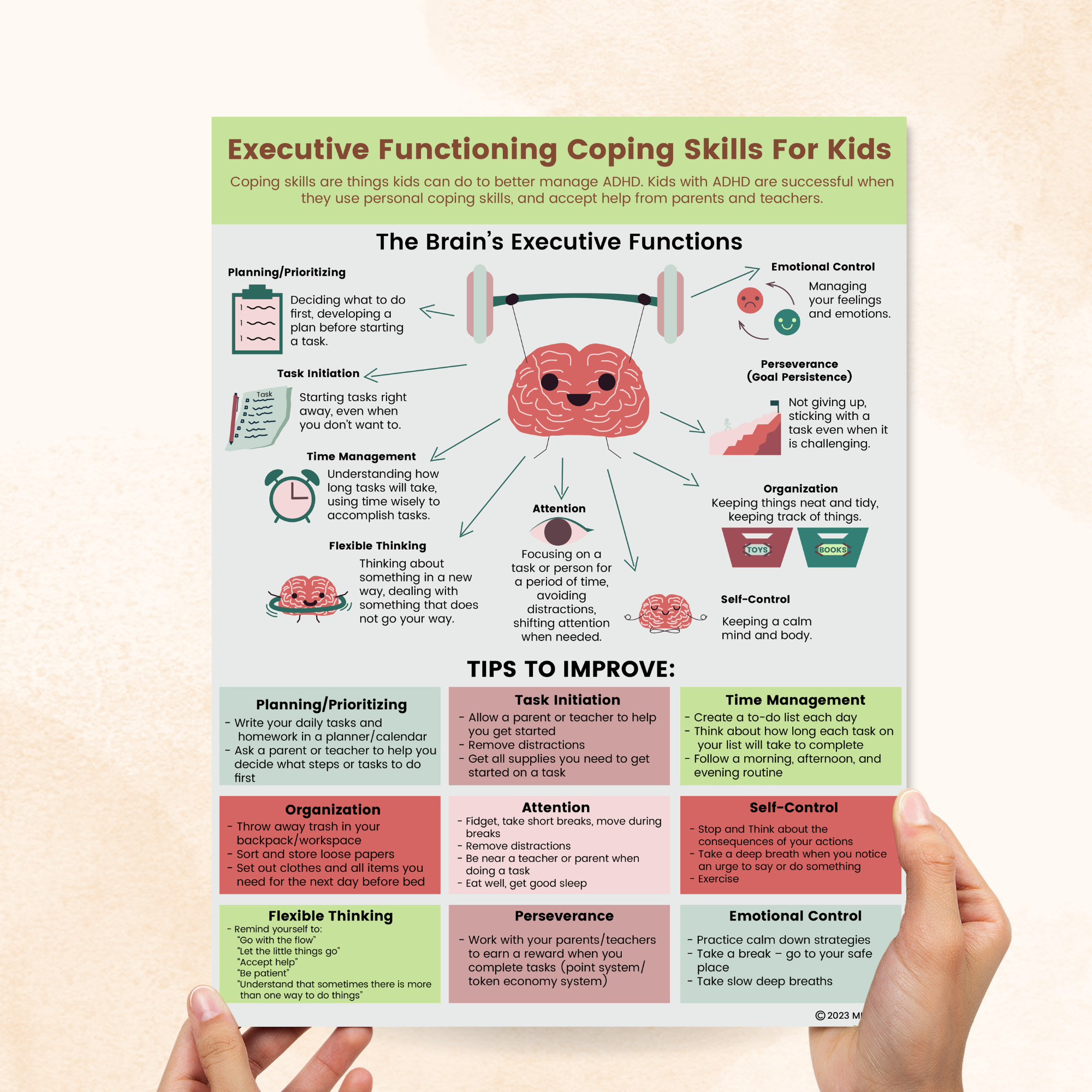|
Key Takeaways:
- Coping skills worksheets help children and teenagers develop better techniques for managing their emotions and behaviors under stressful situations.
- By using coping worksheets, adolescents can lower their disease risk, achieve greater academic success, and have better relationships.
- Some coping skills worksheets include mental health checklists, growth mindsets, breathing exercises, and executive functioning strategies.
|
Transitioning from childhood to teenage years comes with changes and stress. As children undergo physical changes, the urge for autonomy, and emotional evolution, they must develop healthy coping skills to achieve success.
Together with other methods, these printable coping skills worksheets for kids and teens can put your child toward healthier habits.
What are Coping Skills Worksheets?
Coping skills worksheets help children and teens respond to stress with greater flexibility. They are best for children and teenagers who struggle with anxiety, negative thought patterns, moodiness, social withdrawal, frequent fatigue, and problems remembering or focusing.
Coping skills for kids may be different from coping skills for teens. However, introducing fundamental coping mechanisms as early as possible is essential to helping them deal with stressful situations in the future.
What are the Benefits of Using Coping Worksheets?
Coping worksheets equip adolescents with the skills to overcome troubling thoughts and manage themselves in stressful situations. Here are a few other benefits you can expect from using coping worksheets:
-
Lowered risk of disease. Healthy coping mechanisms lower stress and, therefore, cortisol levels, and they also reduce the risk of contracting long-term diseases like cancer [*].
-
Greater academic success. Children who learn to tackle difficult topics and overcome school-related adversities are more successful when they graduate.
-
Better interpersonal relationships. Coping skills enable adolescents to become better communicators and have honest, caring relationships with others.
-
Improved mental and emotion well-being. When children cope well, they become reliable self-soothers but also know when to ask for help. In return, they are more mentally and emotionally functional.
10 Printable Coping Skills Worksheets for Kids & Teens
Are you working on your child’s coping mechanisms? Use these ten printable coping skills worksheets for kids and teens.
1. Feelings Thermometer
Young children and even teenagers may struggle with identifying and acknowledging difficult emotions. By using a feelings thermometer, they can better recognize their feelings and the extent of these emotions.
For instance, if your child expresses anger, a feelings thermometer might help them recognize unhealthy habits resulting from anger, such as being argumentative or throwing a tantrum. From there, they can determine how best to manage these feelings, like counting to ten before they speak, taking a nap, or practicing grounding techniques.
2. Mental Health Checklist
If your child is feeling tired, disheartened, lonely, or depressed, a mental health checklist will encourage them to consider whether they’ve taken the steps to improve their mood. This handout encourages children and teenagers to be mindful of their coping habits—have they been eating well? Have they been getting enough sleep? Do they spend enough time outdoors or with friends?
3. Growth Mindset
It isn’t uncommon for adolescents to feel “left behind” when encountering a challenging situation they struggle to overcome. However, developing a growth mindset can encourage them to see challenges as opportunities to improve their skills and learn to cope better.
Use this growth mindset handout to encourage adolescents to persevere through frustration. It provides affirmations and positive statements to help them gain control over their future successes.
4. Building Resilience
Adolescents who can adapt to stressors, threats, and traumatic events are more likely to make appropriate decisions under challenging circumstances. Our building resilience handout encourages children to take a proactive approach to coping and moving forward.
With this handout, children and teens can track their journey toward maintaining a hopeful outlook, recognizing when to seek help, practicing gratitude and optimism, and going with the flow.
5. Breathing Exercises
Children and adults often underestimate the power of a deep, deliberate breath. Breathing exercises cause positive physiological changes that help a person lower their blood pressure, reduce the level of stress hormones in the body, reduce lactic acid build-up in muscle tissue, and balance levels of oxygen and carbon dioxide in the blood. In doing so, they become relaxed, calm, and more conscious of their responses to their environment.
You can practice different breathing exercises in this handout, such as animal breaths, deep belly breathing, and candle-blowing breaths.
6. Grounding Techniques for Kids and Teens
It can be challenging to come back down when emotions are up high. However, grounding techniques for kids and teens can be critical to how they encounter stressful situations in the future.
Our grounding techniques handout teaches 5-4-3-2-1 grounding, reorientation statements, 2-4-6-8-10 grounding, and other techniques.
7. Coping with Stress
Whether in school, among friends, or at home, children, teenagers, and adults all face situations that cause them stress. As these stressors trigger reactions and emotions, our coping with stress handout provides management skills your child can practice to create a safe space for themselves.
Some stress coping mechanisms in this handout include engaging in physical activity, maintaining a positive attitude, and taking a breath.
8. Emotional Freedom Technique
The emotional freedom technique (EFT) involves tapping certain body parts to relieve anxiety by creating a balance in the energy system. Like acupuncture, it focuses on specific meridian points to send signals to the part of the brain that controls stress.
Through EFT, kids and teens can focus on letting go of negative feelings and achieving calm. A 2016 study has proven the effectiveness of EFT for managing anxiety symptoms [*].
9. How to Take Care of Your Mental Health
There is no one-size-fits-all solution to nurturing mental health. Still, knowing what general steps to take and how to curate a healthy routine can help children and teenagers in the right direction.
Our How To Take Care Of Your Mental Health handout suggests methods for how to build self-esteem, cope with stress, and keep the body healthy.
10. Executive Functioning Strategies
Executive functioning strategies refer to how adolescents manage themselves and their emotions. By honing these skills, children can learn to control their impulses and reach their goals.
Executive functioning skills are not inborn—they are learned. Adults are responsible for the framework for children to learn these skills, so providing opportunities to play, discover, and plan can help them become better managers of their emotions.
The Bottom Line
Living in a high-conflict environment or experiencing stressful events can challenge adolescents' ability to manage their emotions and behaviors. By focusing on developing healthy coping mechanisms like getting proper exercise, eating balanced meals, and becoming more mindful of their emotions, children can become more resilient in trying times.
Explore more of our coping skills worksheets to set your child on the path to greater success.
Sources:
- Sherwood A, Blumenthal JA, Koch GG, et al. “Effects of Coping Skills Training on Quality of Life, Disease Biomarkers, and Clinical Outcomes in Patients With Heart Failure.” Circulation: Heart Failure, 2017.
- Clond M. “Emotional Freedom Techniques for Anxiety.” The Journal of Nervous and Mental Disease, 2016.




